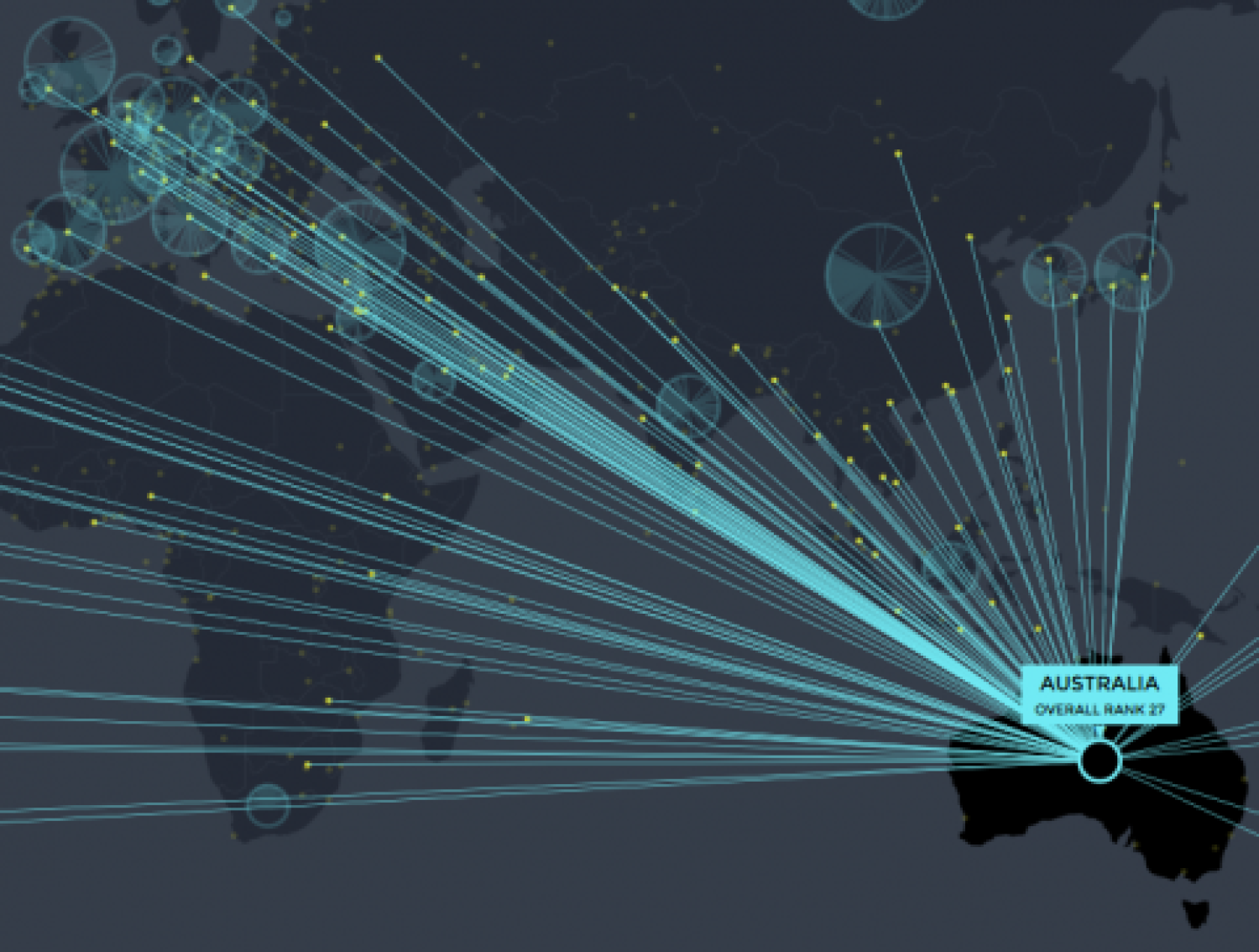Today, the Lowy Institute is releasing its Global Diplomacy Index, an interactive map that plots and ranks the diplomatic network of all 42 G20 and OECD nations. For the first time, the diplomatic posts of the most significant nations — their embassies, consulates, multilateral missions and other representations — have been put on a world map, displaying and comparing their extent and global reach.
The Index is the result of a major research project led by Alex Oliver over the past year, building on earlier studies in 2009 and 2011, to identify and map the diplomatic networks of the 42 OECD and G20 nations.
In all, the Index maps around 6000 diplomatic posts in almost 700 cities. It incorporates and summarises data gathered from ministry directories, official reports and secondary sources, combined with direct communications with ministries, their embassies and consulates-general in Australia.
The Index finds that the top five global diplomatic networks are those of the Security Council Permanent Five: the US, France, China, Russia and the UK (just ahead of Brazil). In the Lowy Institute's earlier studies, France ranked ahead of the US, but this year it has dropped into second place. Propelled by booming economic growth in the last decade, China’s network has grown, and it now outranks Russia and the UK.
Some of the Index's other results confirm the surprising scale of investment in diplomatic infrastructure by some smaller, mainly European, nations. [fold]
The diplomatic networks of small nations such as Switzerland, the Netherlands and Greece are more extensive than those of Australia, despite having far smaller economies and populations. Canada has more than twice the population and GDP of the Netherlands, but the two countries have the same sized diplomatic networks. Spain has 40 more diplomatic missions than India, despite an economy two-thirds the size and a fraction of the population. Belgium, a tiny nation that can rely on its membership of NATO and the EU for security as well as diplomatic and economic ballast, has a larger network than Australia, which has no such backing.
The Index also reflects the rise of the BRICS and other emerging powers: as well as China, Brazil, Turkey, India, Korea, Mexico, Argentina and Indonesia are in the top 20 networks. South Africa comes in 23rd.
The challenges of the 21st century are no doubt producing significant changes in the way nations practice diplomacy. The increasing influence and importance of non-state actors, the transformations in technology and communications, the 24/7 news media phenomenon, and the escalation of terrorism and security threats mean that traditional forms of diplomacy, and the roles of embassies and other diplomatic missions, are changing. Some have gone so far as to suggest that diplomacy is 'dead,' or that there is no longer any useful role played by embassies. Alex puts the question herself in a Foreign Affairs piece today.
That's a longstanding debate, and one we should continue to test. But the 5900 or so posts identified in the Index indicate that nations are continuing to make substantial investments in maintaining worldwide diplomatic networks. They are evidence that most of the world's global powers still think their networks of embassies, consulates and other missions play an important role in their nations' diplomacy.


